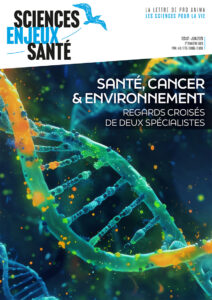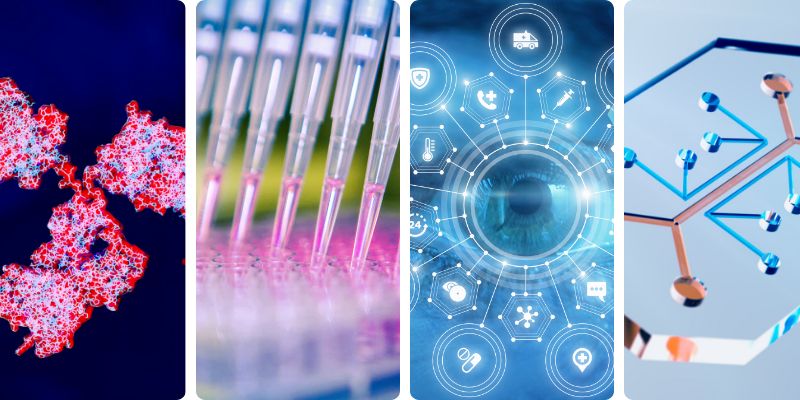
News on non-animal methods
News on non-animal methods
Oct. 30 - Nov. 3, 2023Netherlands MPS Day
Netherlands MPS Day is a one-day event for anyone interested in Organ-on-a-Chip technology ! Featuring a series of sessions led by experts from Leiden University Medical Center, the German Cancer Research Center, and more, Netherlands MPS Day promises to be the premier event for all things Organ-Chips in Europe. While we’d love everyone to join us in person to take part in networking and hands-on sessions, this event will also be available to attend virtually.
Insight : Pascal Sanders, coordinator PARC
The PARC spirit : Committed to collaboration and innovation
A year and a half into the project, Partnership for Assessment of Chemical Risks (PARC) has reached many milestones. But as the activities grow in number, challenges may arise to keep PARC on track, states PARC Coordinator Pascal Sanders in this interview. He is confident that the challenges will be overcome by the diverse skills combined in PARC and by a strong commitment to collaborate and come up with innovative solutions.
Charting the course towards an early warning system for chemicals
The PARC consortium has provided the vital building blocks for the development of a robust early warning system (EWS) for hazardous chemicals in a new report.
Innovative self-sampling approaches developed can expedite the detection of hazardous chemicals and enable timely responses.
Additionally, the development of new approach methodologies (NAMs) will be a step forward in chemical hazard assessment. These methodologies (e.g., in silico, in chemico, in vitro, and ex vivo approaches), which provide information on chemical hazards while avoiding the use of animals, are a more ethical and sustainable approach in chemical analysis and are expected to lead to further advancements in hazard identification.
New cerebral organoids may provide basis for Glioblastoma models
Glioblastoma (GBM) is fatal and the study of therapeutic resistance, disease progression, and drug discovery in GBM or glioma stem cells is often hindered by limited resources. This limitation slows down progress in both drug discovery and patient survival.
The article presents a genetically engineered human cerebral organoid model with a cancer-like phenotype that could provide a basis for GBM-like models.
Artificial intelligence as the new frontier in chemical risk assessment
The rapid progress of AI impacts various areas of life, including toxicology, and promises a major role for AI in future risk assessments. Toxicology has shifted from a purely empirical science focused on observing chemical exposure outcomes to a data-rich field ripe for AI integration. AI methods are well-suited to handling and integrating large, diverse data volumes — a key challenge in modern toxicology.
Improving inflammatory disease drug development with organ-on-a-chip technology
Researchers used the Colon Intestine-Chip, which recreates the human colonic epithelial-endothelial interface by incorporating primary human tissue, vasculature, and mechanical forces. By introducing immune cells into the vasculature in the presence of an inflammatory stimulus, researchers were able to model the entire process of dysregulated immune response that drives IBD pathology, including immune cell attachment, migration, downstream cytokine cascades, and barrier damage. This innovative approach allows researchers to gain a deeper understanding of how IBD evolves and identify potential targets for novel therapies.
The relevance of a liver-on-a-chip model to study the effects of five short-chain PFAS
Short-chain per- and polyfluoroalkyl substances (PFAS) are highly stable and widely used environmental contaminants that pose potential health risks to humans. Aggregating reliable mechanistic information for safety assessments necessitates physiologically relevant high-throughput screening approaches. In this article, scientists demonstrated the utility of a liver-on-a-chip model to investigate the effects of five short-chain PFAS.
How organoids can redefine pre-clinical research
Organoids, lab-grown 3D structures that mimic human organs, are redefining preclinical research through bypassing the ethical and practical limitations of animal models.
Technological advancements in organoid research, including automation and improved analytical tools, promise to unlock new possibilities by streamlining the application of these 3D structures to enhance drug development and disease modelling.


